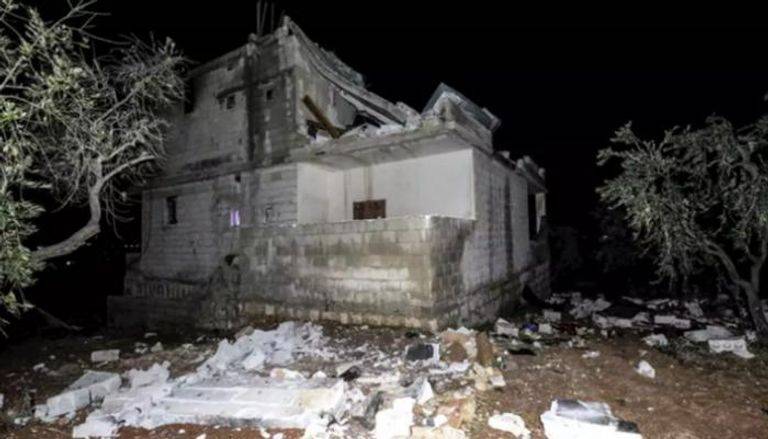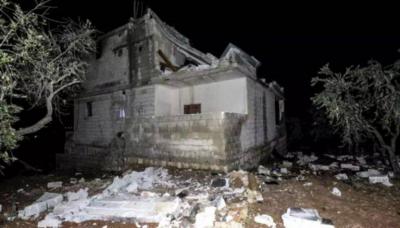In a remote area of Syria crowded with displaced people uprooted by a war that has lasted 11 years, the leader of ISIS and his family lived in plain sight. The family paid their rent regularly and imposed a circle of isolation on themselves in a place where neighbors did not pry into each other's pasts. Everything changed on Thursday evening when U.S. special forces raided the town of Atmeh in northwestern Syria to uncover their hideout. Abu Ibrahim al-Hashimi al-Qurashi, the leader of one of the world's most feared groups, detonated himself to avoid capture, and the U.S. stated that "the explosion resulted in the deaths of several family members and others." His death was considered a blow to ISIS as its fighters began re-emerging as a source of violent threat in Syria and Iraq.
Until that moment, the residents of the area believed Qurashi to be a Syrian trader from Aleppo seeking relative safety for himself and his family in Atmeh near the Turkish border, away from the frontline of the Syrian conflict. There was nothing noteworthy or attention-grabbing about the three-story building on the outskirts of the city since Qurashi rented an apartment there a year ago, initially taking the first floor before expanding to rent the upper floor as well.
A woman, living on the ground floor and referring to her neighbors as "the Abu Ahmed family," said, "The children's behavior was generally good," adding that they stayed out of sight and accompanied their mother to the stores occasionally. The woman, who provided her name only as "Amina" in a phone interview, said, "They kept to themselves, and their children played outside from time to time, but we didn't socialize." Amina refrained from giving her full name for fear of retaliation.
She recalled receiving an invitation from one of Qurashi's wives, Um Ahmed, to have tea. Um Ahmed mentioned that "her husband was a trader from Aleppo who fled the city due to the war." After the shock wore off, Amina recalled in astonishment how she had not noticed the family's infrequent appearances, saying, "The women's clothing was black and completely covered them." And while the family was not from Atmeh, that was not unusual in an area that had seen tens of thousands flee from across the country. Amina stated, "We thought they had gone through a lot, but as you know, everyone has their tragedy here, and no one talks to each other about what happened; we prefer that the details remain with us."
### Hiding Next to the Enemies
Qurashi took over the leadership of ISIS after the death of its founder, Abu Bakr al-Baghdadi, in 2019. The two endings were similar, as Baghdadi was also killed while detonating explosives during a U.S. special forces raid. Baghdadi likewise hid in northwestern Syria, the last major stronghold of militants fighting against the Syrian army, with his hideout located just 25 kilometers from Atmeh in Idlib province as well.
Qurashi's hideout was close to a checkpoint managed by the armed group that controls most of Idlib, known as Hay'at Tahrir al-Sham, a faction that was formerly known as "Jabhat al-Nusra" and has had a feud with ISIS for years. He was also not far from Turkish military positions in the nearby Afrin area in northwestern Syria. Despite the proximity of hostile forces, the place was relatively good for hiding for Qurashi, who sought to revive ISIS, which controlled a third of Iraq and Syria in 2014 before it began to retreat.
Syrians say it is easy for outsiders to pass unnoticed. In addition to the displaced, foreigners who traveled to the country during the war as volunteers to fight or for humanitarian work live in the area. Last October, another ISIS leader, Sami Jassim, was captured in northwestern Syria during an Iraqi operation carried out with Turkish assistance. A senior White House official stated that there is a belief the blast resulted in the deaths of Qurashi, his two wives, and a child in one of the floors of the house, with another child likely in a different floor with Qurashi's assistant and his wife, who were killed after gunfire erupted with U.S. forces. Syrian rescuers reported that 13 people were killed, including four women and six children, while witnesses said they saw children's toys scattered in the destroyed apartments.




